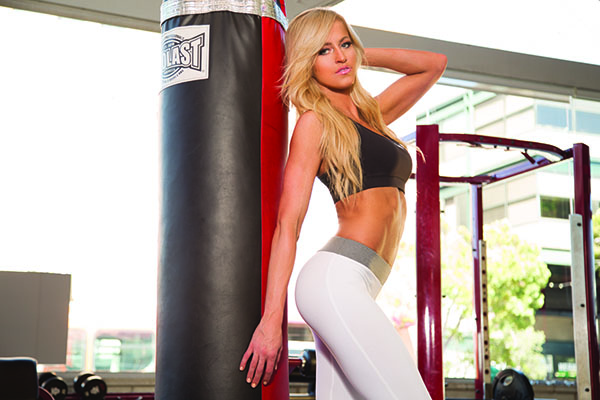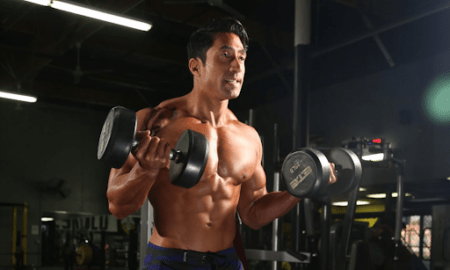Don’t we all love that tight, debilitating feeling of soreness we get 1-3 days after a workout? I know, we are all so sick in the head. I mean seriously, you didn’t have an awesome leg workout if you’re able to easily walk up the stairs the next day… right? Don’t you HAVE to be sore to build new muscle? Well, the answer may surprise you.
No, muscle soreness, or delayed onset muscle soreness (DOMS), really doesn’t have much to do with muscle hypertrophy. The soreness you feel is related to the connective tissue being damaged, inflamed, and not 100% recovered.
There are studies showing that the soreness you feel days after a workout is not necessarily related to muscle growth. Performing exercises such as downhill running or eccentric cycling will certainly cause soreness in the thighs the next day, primarily the quads, but the studies show no indication of muscle hypertrophy due to that soreness.
Knowing this information, I still have a mental problem not being sore the day/days after my workout. I feel like I didn’t work hard enough or didn’t do as much as I could’ve. I’d say 95% of us are like that, but we need to get out of that mindset. I know we all love that phrase “no pain, no gain”, but we really don’t have to be in pain to build muscle.
There are many different things that will determine how sore or un-sore you are:
- Your fitness level.
- Obviously the beginner who is just walking into the gym for the first time will be much more sore than the advanced lifter with 10 years of training under his/her belt. Transitioning from a beginner to an advanced lifter, you’ll find that it is harder and harder to get “really” sore (not that it matters anyway).
- Genetics.
- Personally, it’s very rare that my shoulders become extremely sore, no matter how hard I train them or how much volume I throw at them. On the contrary, my legs will get sore from anything! Five sets of squats and I can already feel the soreness setting it.
- Type of activity.
- It’s not just lifting weights that will contribute to soreness. As I stated earlier: resistance cycling, running downhill, and jumping rope can get many muscles “sore”, but none of those activities will contribute to bigger muscles. I could go perform 500 jumping jacks right now and I guarantee my calves will be sore tomorrow, but they probably won’t be any bigger.
Two main variables that will ALWAYS contribute to bigger and stronger muscles:
- Training intensity.
- You have to give your muscles a reason to grow. You cannot just go into the gym doing the same exercises, for the same reps, with the same weight and then expect to grow new muscle tissue. Train to failure. Use intensity boosters. Shorten your rest periods to bring upon more metabolic stress that will FORCE your body to adapt and grow larger and stronger.
- Progressive overload.
- This, in my opinion, will always be the most important factor for muscle hypertrophy. Each week or every other week, you must be raising the bar (no pun intended). You either need to increase the weight and do the same number of reps on a given exercise, perform more repetitions than last week with the same amount of weight, or increase the volume you are performing for each muscle group. It’s these small, progressive changes and improvements over time that will add up to big results in strength and muscle hypertrophy.
Train hard and train smart.






















You must be logged in to post a comment Login